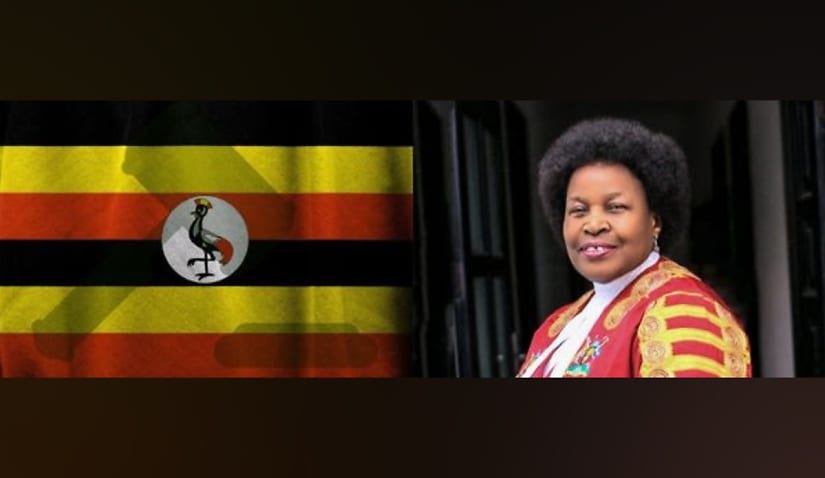A Ugandan Supreme Court judge has had disciplinary proceedings brought against her, despite her actions being in line with international standards on the independence of the judiciary. This brings further attention to the importance of judges being allowed to fulfil their roles in order to uphold judicial independence.

The Republic of Uganda’s Supreme Court Justice, Dr Esther Kisaakye, has faced “unfair and arbitrary treatment”, following her handing down of a dissenting judgment in a 2021 presidential election petition, stated the International Bar Association's Human Rights Institute (IBAHRI).
Disciplinary proceedings have been brought against her, along with a recommendation to the country’s president that she be removed from the Office of the Supreme Court.
According to reports received by the IBAHRI, a disciplinary inquiry was initiated by Uganda’s Judicial Service Commission (JSC) following Justice Kisaakye’s decision to deliver her dissenting judgment in one of the 2021 presidential election petitions, where the main opposition leader from the National Unity Platform (NUP), Robert Kyagulanyi Ssentamu, also known as Bobi Wine, filed a petition challenging the results of the 2021 presidential election that saw incumbent President Yoweri Museveni re-elected.
Mr Ssentamu made a follow-up application seeking leave of the Court to amend his main application, which the Court refused to grant, holding that the application had been beyond the strict time limit provided by law within which the petition should be filed.
However, Justice Kisaakye dissented — the only judge on the bench to do so — arguing that the applicant had been deprived of his right to prepare the application as he was under illegal house arrest.
Justice Kisaakye has alleged that Chief Justice Alfonse Owiny-Dollo attempted to obstruct her from handing down her dissenting judgment by ordering her not to deliver it and having armed police guards confiscate her court files and reasoned rulings.
Despite these attempts, she proceeded to deliver her dissenting judgment to the public on 18 March 2021, even though the lights and the public address system in the courtroom had been switched off.
On 25 March 2021, the JSC opened an investigation into the events of 18 March.
The proposition of her removal poses a threat to judicial independence in Uganda, noted the IBAHRI.
IBAHRI co-chair and immediate past secretary general of the Swedish Bar Association, Anne Ramberg Dr Jur hc commented: “Justice Kisaakye acted in accordance with international standards on the independence of the judiciary in delivering her dissenting judgment, seemingly despite overwhelming pressure not to do so.
“The IBAHRI is concerned that her actions have led to her being punished with calls for her to be removed from the bench, apparently without due process being followed,” said Ms Ramberg.
Ms Ramberg continued, “Rather than there being calls for her removal, she should be applauded for her bravery in standing up for the rule of law and independence in her capacity as a judge.”
The IBAHRI brought attention to Principle 11 of the United Nations Basic Principles on the Independence of the Judiciary, which states, “The term of office of judges, their independence, security, adequate remuneration, conditions of service, pensions and the age of retirement shall be adequately secured by law.”
If the principles that permit judicial independence are undermined by senior judicial officers and government officials, then independence in Uganda’s judiciary is at risk.
After being served with the preliminary findings of the JSC investigation in mid-2022, Justice Kisaakye alleged that the JSC initiated a disciplinary inquiry disguised as a general inquiry without observing any due process or setting procedures under the Constitution of the Republic of Uganda.
Despite accusations of a lack of due process and diligence, on 27 February 2023 the JSC recommended the removal of Justice Kisaakye to President Museveni.
This has prompted Justice Kisaakye to make allegations of unconstitutionality and a lack of due process. She has filed a petition with the Constitutional Court against the Chief Justice and other senior judicial figures, including the JSC, to determine the constitutionality of the actions taken against her.
She has accused the JSC of acting unconstitutionally under Article 147(1)(a) of the Constitution of the Republic of Uganda by effectively usurping the power of the president to set up a tribunal and acting as a tribunal itself by reaching a guilty verdict.
Justice Kisaakye has also accused senior judicial figures of withholding her salary, housing, medical and other benefits; removing her research assistant; and refusing to allocate work to her.